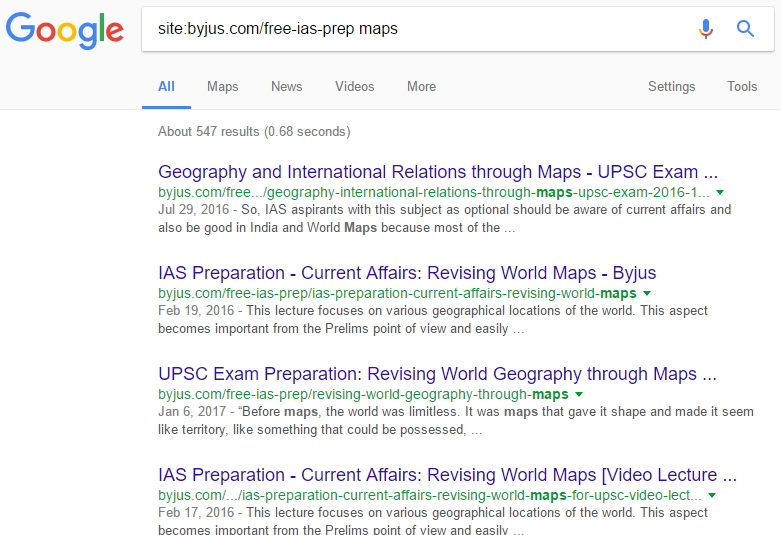Preparing for the IAS exam has undergone a sea change in the past decade or so. One of the major causes of this change is the Internet – that piece of technology that has ushered in many changes in every facet of life. Any serious aspirant of the UPSC civil services cannot ignore this fascinating feature. The USPC exam schedule, syllabus, UPSC notification, your dose of daily news, syllabus content, online version of text books, notes, expert advice, exam-related motivation – you name it, anything and everything is available at the click of a button.
| Preparing for UPSC? Complement your IAS exam preparation with the following links to gain an edge over the competitors- |
When you look for information on the Internet, be it UPSC exam related or UPSC syllabus related, there are certain ways you can enhance your search. Read on for methods to optimize your search queries and get the best out of the Internet for your IAS preparation.
Tips To Search the Internet Optimally for UPSC Preparation
- Use unique words or phrases
When you are searching for say, information on a specific topic, use the specific terms and phrases. For instance, if you want information on socio-religious reform movements of the 19th century in India, make sure you use all the keywords. The relevant keywords here are reform movements, 19th century, Indian. Also, instead of typing, Indian history, always type specific words mentioning the time period, specific dynasties, names, movements, etc. for more details.
- Use quotes for an exact search
Using phrases within quotes will give you pages that contain all the words in the phrase in the order that you typed. For example, a search query, “My Experiments with the Truth” will give you exact hits on the title of this book by Gandhi. If you are searching for info on the Atlas mountain ranges, using the quotes will better your search results. (“Atlas Mountain Range”)
- Use the minus operator to narrow your search
Again, if you want to narrow your search and rule out certain things use the minus (-) operator. For instance, if you want information on oil and natural gas, use the (-) operator like this:
Oil and natural gas –corporation
This will give you info on oil and natural gas excluding info on the company ‘Oil and Natural Gas Corporation, ONGC.
Candidates can go through the following links for the preparation of the exam-
- Using the plus operator
Generally, search engines ignore common words like ‘a’, ‘the’, ‘and’, etc, but using the + sign before these words will include them in your search results.
- How to use the site search
Site search is used when you want to search for any information on a particular site. For instance, using the following search query will yield all the results in the BYJU’S free IAS prep website for map-related info.

Use these effective search engine tools to enhance your use of the Internet and get the maximum advantage. Remember a tool is only as good as the hands that use it.
You should also be cautious of being sucked into the internet maze with its interconnected pages and links. You should remember not to surf for unnecessary information and waste time meant for your IAS preparation.
Happy searching!
Another way the Internet can help you in your IAS pursuit. Enroll for BYJU’S All-India Prelims Test Series and boost your UPSC civil services prelims preparation.
Related Links:

Comments